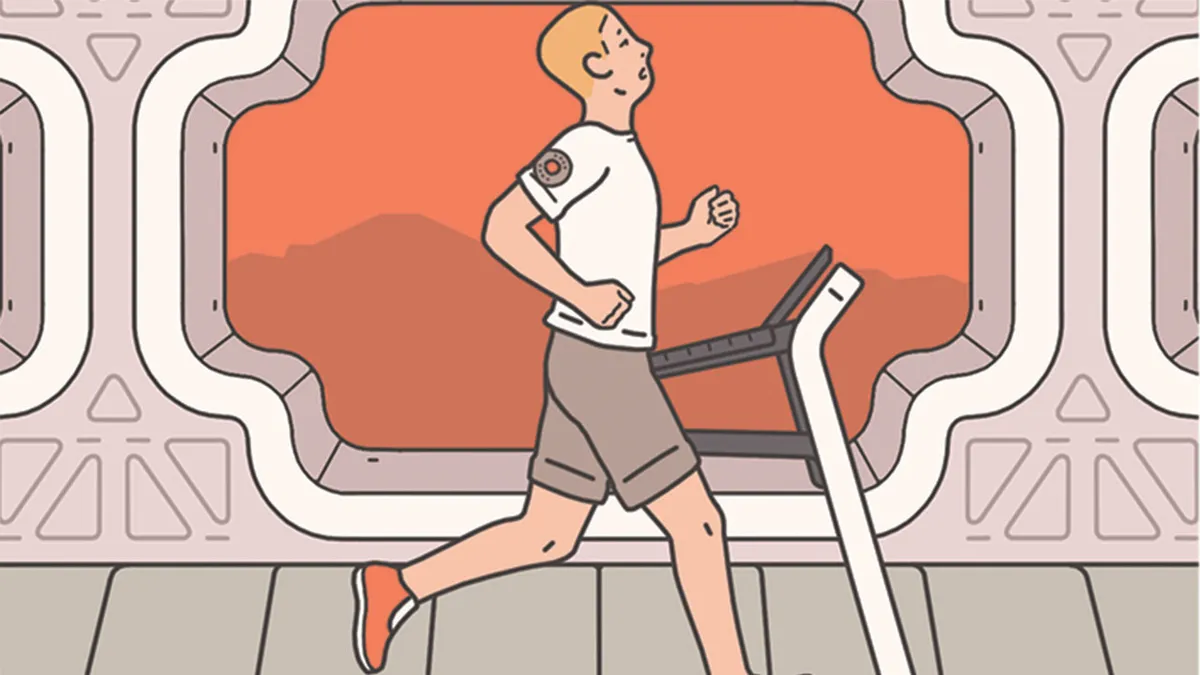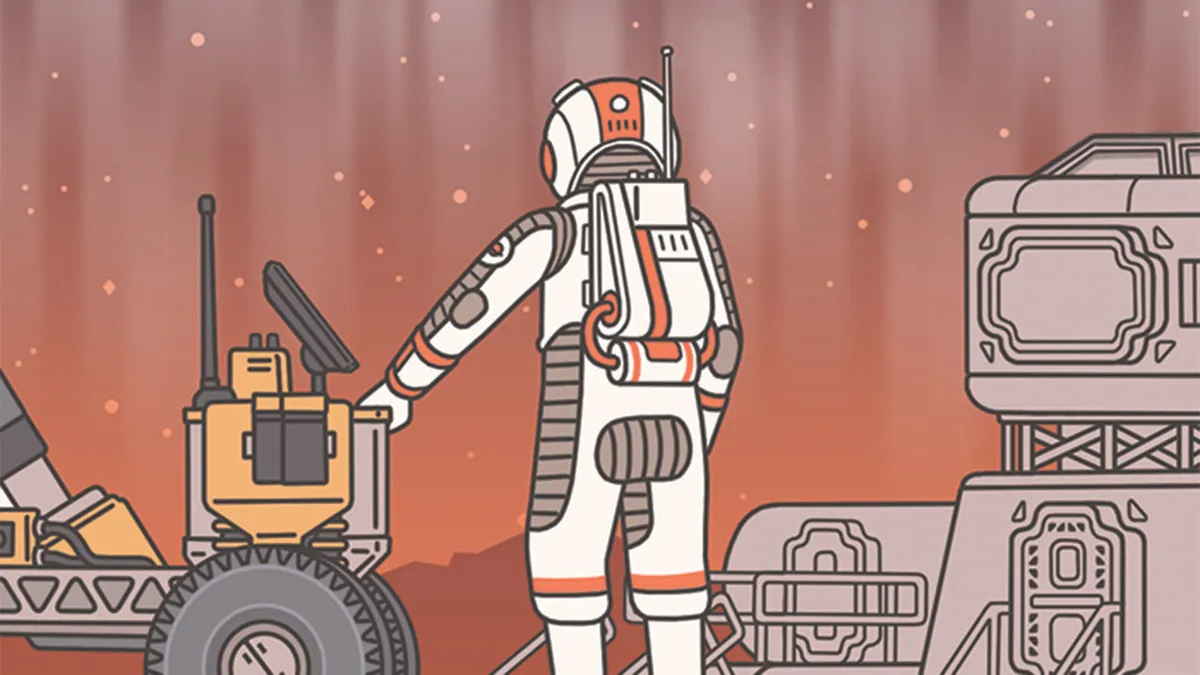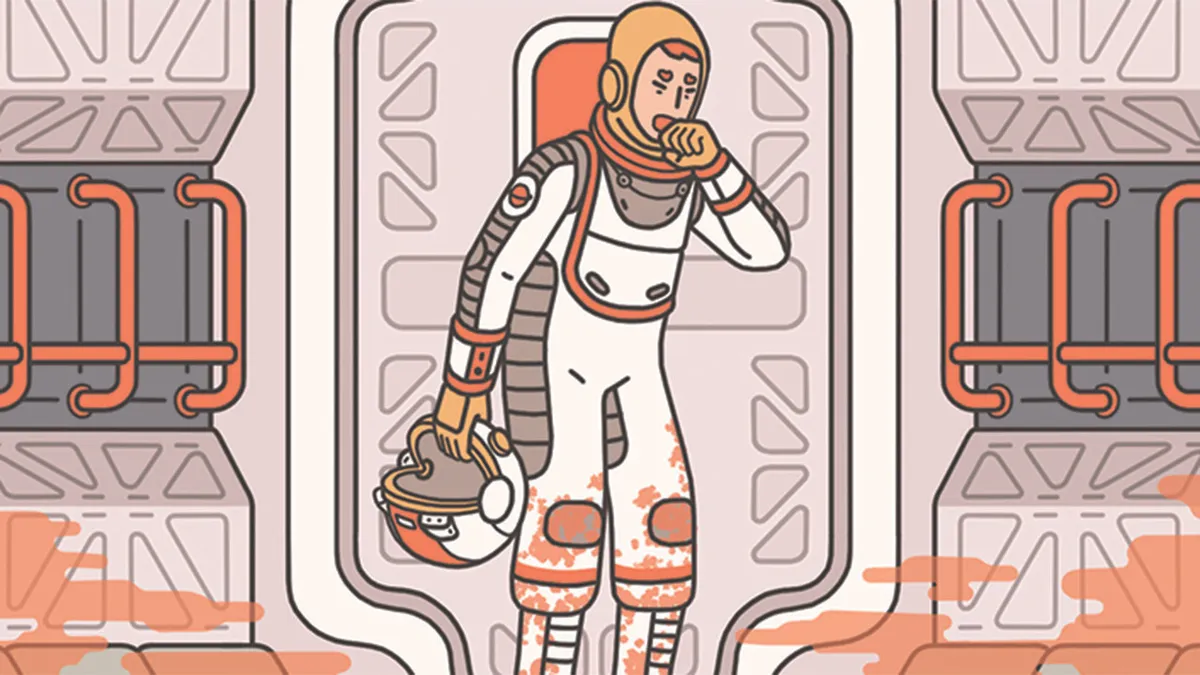1. Lower gravity

The effects of zero gravity have been studied on the International Space Station, but the long term impact of low gravity is unknown.
An hour in a special gym each day might be enough to stave off muscle wasting and bone loss. But reduced gravity also lowers red blood cell counts and compromises your immune system, and a treadmill won’t help with that.
2. Radiation

The surface radiation on Mars is 0.67mSv per day, which is the equivalent exposure of a daily hip X-ray. This radiation is mostly in the form of galactic cosmic rays.
Martian soil could be used to shield a Mars base from the rays, but the covering would need to be five metres thick. Even for a three-year round trip to Mars, studies predict a 10 per cent chance of developing a fatal cancer.
3. Toxic soil

Martian topsoil is full of highly reactive perchlorates, formed by the action of UV rays. Some of this dust will inevitably be tracked into the Mars base and be inhaled or ingested.
Perchlorate poisoning is reversible, but on Mars you’ll be constantly exposed. Just 25 parts per billion in drinking water will suppress thyroid function and raise blood pressure. Higher doses cause lung damage.